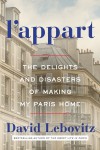19
Followers
19
Following
M Sarki
Besides being a poet with four collections published, M Sarki is a painter, film maker, and photographer. He likes fine coffee and long walks.
M Sarki has written, directed, and produced six short films titled Gnoman's Bois de Rose, Biscuits and Striola , The Tools of Migrant Hunters, My Father's Kitchen, GL, and Cropped Out 2010. More details to follow. Also the author of the feature film screenplay, Alphonso Bow.
Currently reading
L'Appart: The Delights and Disasters of Making My Paris Home
We Learn Nothing: Essays
Elmet: LONGLISTED FOR THE MAN BOOKER PRIZE 2017
Limbo, and Other Places I Have Lived: Short Stories
The Double Life of Liliane
At Home with the Armadillo
American Witness: The Art and Life of Robert Frank
Autumn
Inside Out: A Personal History of Pink Floyd (Reading Edition)
American Witness: The Art and Life of Robert Frank
The Silence
 http://msarki.tumblr.com/post/82884140529/the-silence-by-jens-bj-rneboe
http://msarki.tumblr.com/post/82884140529/the-silence-by-jens-bj-rneboeThe silence referred to, it is important to note, is the calm before the storm. For example, the eery quiet just before a hurricane. And this silence exists it seems for the somber hope present in the moments before a revolution.
Because there is no story to begin with, and the text at first appears boringly political in its talk of revolution, and the words go on and on in such a way that offers doubt for any hope of entertainment, still a reader such as myself buckles down and presses on. And before the reader knows it he, or she, is sucked in again to the marrow and excessively violent world of Jens Bjørneboe. It is nothing short of a miracle to me how his books fascinate, and The Silence is no exception.
Historical figures make their many appearances throughout the novel and their stories are told through the voice of a steady narrator at times unhinged by his life experience and given to bouts of heavy drinking and his own self-inflicted physical abuse. But the narrator manages still to prevail and the reader is rewarded with rich historical accounts of characters such as Columbus, Pizarro, and Cortez, ending with one of the best known and influential figures of the French Revolution Maximilien de Robespierre, the Incorruptible. The accounts of genocide are numerous and graphic in the Bjørneboe telling.
Esther Greenleaf Murer is the brilliant translator of this work and she offers an introduction to The Silence that is sufficient and superior to anything I might write about this book. Bjørneboe’s very last chapter is one of the best endings to a book I have ever read. I could not recommend this book more to all of humanity, both good and evil, the righteous and unrighteous among us, and the penetrating gaze made available for all of us to peer unflinchingly into the abyss where suffering has no end and pain has no meaning.







